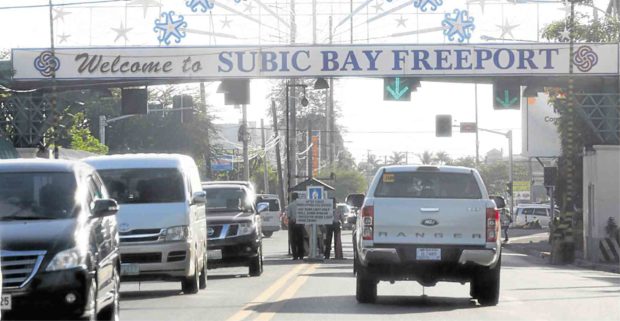
MANILA, Philippines — The cancellation of the Subic coal -fired power plant project of Manila Electric Corporation (Meralco) and its partners is a victory for people advocating clean energy sources, pro-environment and health groups said.
In a statement, the Power for People Coalition (P4P) said that the cancellation of the 600 megawatt (MW) coal-fired power plant project should be taken as a sign that other coal projects are no longer sustainable.
The power plant is a project under Redondo Peninsula Energy Inc. (RP Energy), which is a joint venture between Meralco’s generation arm Meralco PowerGen, Aboitiz Power Corporation, and Taiwan Cogeneration Corp.
“While the cancellation of the Subic coal plant is a welcome development, we no longer find it surprising given the many triumphs that groups advocating for clean energy have won over it,” P4P convenor Gerry Arances said on Wednesday.
“We recall how, in 2019, the contract of RP Energy is among the seven power supply agreements (PSA) of Meralco denied by the Supreme Court for failing to adhere to proper procurement practices. Meralco has since been struggling to secure PSAs for these projects,” he added.
Proof of coal power plant projects’ unprofitability, Arances said, is a major bank’s decision to pull out from financing this project and another 1,200 MW proposed coal plant in Quezon province.
According to Arances, who is also the convener of coal finance watchdog Withdraw from Coal, a top executive of the bank said that they have already pulled out loans given to RP Energy and Atimonan One Energy (A1E) which is in charge of the Quezon project.
“With years and years of delays, we can only imagine the losses it has had to deal with. We hope the shelving of the Subic project means Meralco is finally starting to see sense and would soon have more coal cancellations to announce,” Arances said.
“With this and on top of the deadly, dirty, and costly impacts of coal to people and the environment, there’s no reason why an announcement of A1E’s cancellation shouldn’t be just around the corner as well,” he added.
Subic Bay Freeport Chamber for Health and Environment Conservation (SBFCHEC) president Jen Velarmino Van der Heijde said that they would be able to face the youth of Subic and tell them that they fought for the environment successfully.

Subic Bay Freeport(INQUIRER file photo / NIÑO JESUS ORBETA)
“With this news, we are able to face the youth and future generations of Subic residents with pride knowing we won the fight against this dirty energy project. We have seen the kind of destruction coal and other fossil fuels wreaked onto other communities in Zambales and across the country,” Van der Heijde said.
“The cancellation of RP Energy’s coal plant is an encouragement for us to continue working to free Subic from the threat of dirty energy,” she added.
INQUIRER.net has sought the side of Meralco over the cancellation of the Subic coal power plant project. It has yet to issue a statement on the matter.
Company representatives, however, said that they would study P4P’s claims and respond at the soonest possible time.
But if Fr. Warren Puno, director of the Ministry of Ecology of the Diocese of Lucena is to be asked, the cancellation should be a lesson for Meralco that coal would only spark a myriad of problems.
“The failure of RP Energy in pursuing its Subic coal plant should already be a lesson learned for Meralco, other coal proponents, and financiers that coal will result in nothing but problems for them in years to come,” Puno said.
“On our part as residents of Quezon, we would continue using our voices to amplify the cry of the Earth against coal. Meralco would do well to cancel its Atimonan coal project and save itself from further trouble, while saving our air, land, and waters from further degradation,” he explained.
On February 2015, former Meralco president Oscar Reyes said that the project would likely cost around $1 billion.
In June of the same year, Meralco scaled down the project, saying that they might drop to 300 MW due to transmission constraints.

